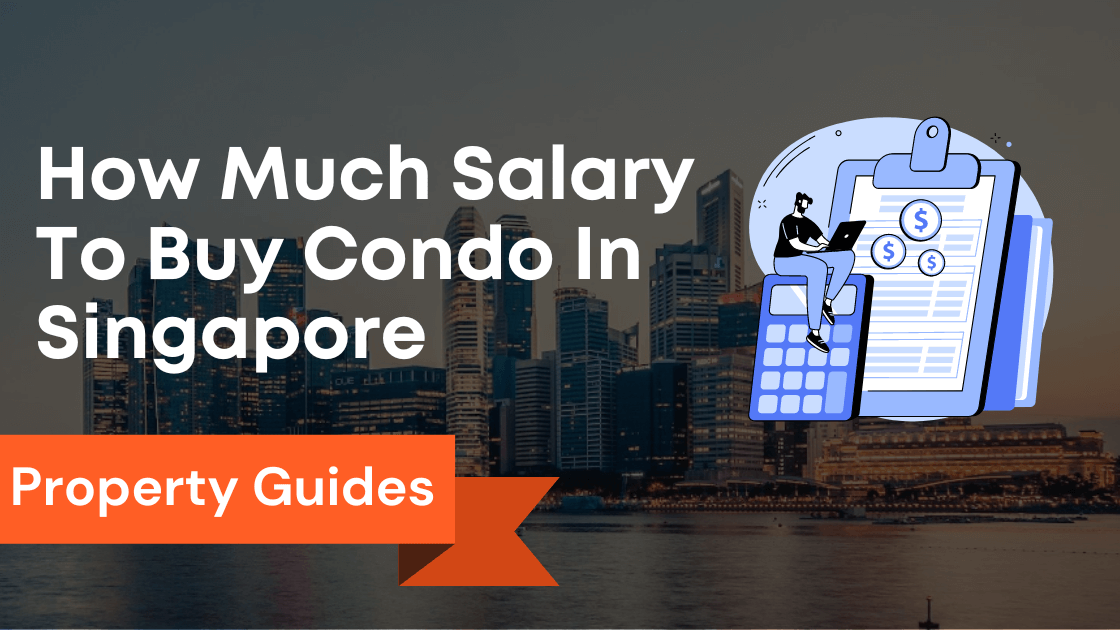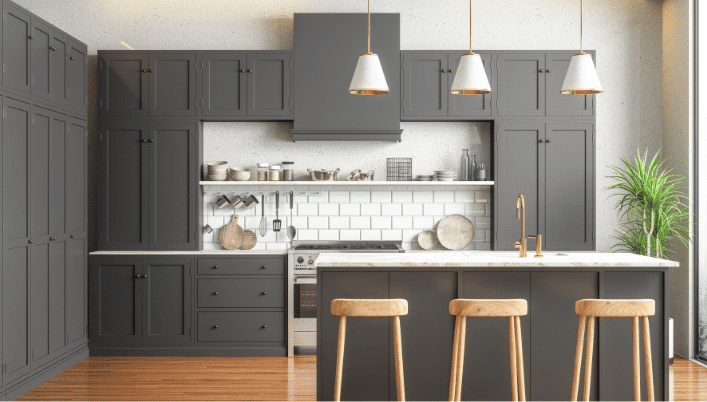
Unveil the captivating journey of home renovation guidelines in Singapore, where creativity intertwines with functionality.
Explore the world of renovation permits, ensuring your vision aligns with safety standards while embracing the magic of transformation.
Navigate HDB guidelines, discover eco-friendly designs, and optimize space.
Uncover the art of harmonizing noise control during renovations and dive into minimalist interior design.
Let the BCA guide your renovation journey, and collaborate with skilled interior designers to turn dreams into reality.
Welcome to Singaporean home renovation—a world of boundless possibilities.
Key Takeaways
- Renovation Permit Importance: A renovation permit, issued by authorities, grants permission for home renovations. It ensures safety, quality, and prevents issues during construction. It safeguards homeowners and contractors.
- Application Process: Apply for permits at BCA or HDB based on property type. Provide detailed renovation plans and supporting documents. Start early to ensure a smooth timeline.
- Guidelines and Regulations: Adhere to guidelines for safe and responsible renovation. Covering noise control, hacking, electrical works, and structural changes is essential to avoid complications.
- HDB Renovation Guidelines: HDB flats have additional guidelines to maintain structure, safety, and resident well-being. Walls, ceiling heights, and common areas have specific restrictions.
- Permits for HDB Flats: Obtain HDB renovation permit before starting renovations. It ensures compliance with guidelines and safeguards the flat’s integrity.
- Renovation Challenges: Renovating HDB flats can pose unique challenges such as limited space and coordination with neighbors. Close collaboration with contractors and effective noise management is important.
- Interior Designer’s Role: Interior designers translate visions, advise on materials, and manage projects. Choose a designer aligned with your style and communicate effectively.
- Design Styles in Singapore: Popular interior design styles include minimalist, industrial, Scandinavian, and contemporary. Explore different styles to match personal preferences.
- Maximizing Space: Innovative storage solutions, multifunctional furniture, and vertical utilization can optimize space in small homes.
- Eco-Friendly Design: Incorporate energy-efficient appliances, sustainable materials, and waste management for a greener home.
Understanding Renovation Permits in Singapore
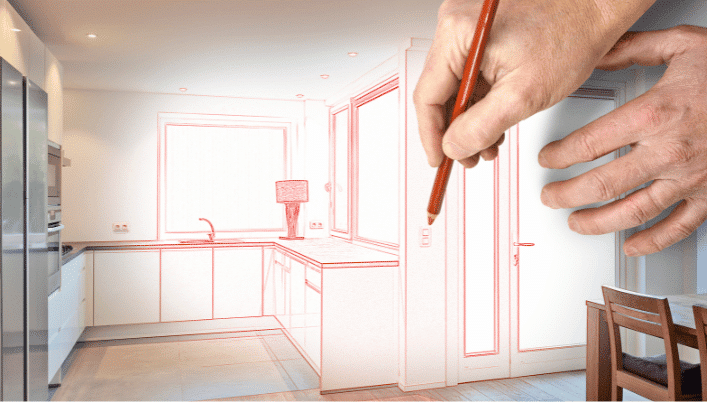
What is a renovation permit, and why is it important?
A renovation permit is a document issued by the relevant authorities that permits you to carry out renovation work in your home.
It ensures that your renovations meet safety and quality standards and helps prevent any potential issues that may arise during the construction process.
Having a renovation permit is crucial as it helps protect both you as the homeowner and the contractors involved.
How do I apply for a renovation permit in Singapore?
To apply for a renovation permit in Singapore, you must apply to the Building and Construction Authority (BCA) or the relevant Housing Development Board (HDB) branch, depending on your property type.
The application process typically involves providing detailed renovation plans, including floor plans, materials specifications, and supporting documents.
It’s important to note that the application timelines may vary, so starting the process well in advance is advisable to ensure a smooth renovation timeline.
Are there any restrictions or guidelines for renovation work?
Yes, specific guidelines and regulations are in place to ensure that renovation work is carried out safely and responsibly.
These guidelines cover various aspects of the renovation process, such as noise control, hacking, electrical works, and structural changes.
To ensure everything runs smoothly, familiarize yourself with these guidelines before commencing renovation work.
Navigating HDB Renovation Guidelines: Renovation Ideas to consider

What are the specific renovation guidelines for HDB flats?
For homeowners residing in HDB flats, some additional guidelines and rules must be followed.
These guidelines aim to maintain the structural integrity of the building and ensure the safety and well-being of the residents.
Some standard renovation guidelines for HDB flats include restrictions on the hacking of walls, limitations on floor-to-ceiling heights, and rules regarding using common areas within the building.
It’s essential to be aware of these guidelines to avoid any violations and potential penalties.
Do I need to obtain a renovation permit for my HDB flat?
Yes, homeowners who wish to carry out renovations in their HDB flats are required to obtain a renovation permit from the HDB.
The key ensures that the proposed renovations meet the necessary guidelines and do not compromise the integrity of the flat or the building.
Obtaining the permit before commencing renovation work is crucial to avoid inconveniences or penalties.
What are the common challenges faced when renovating HDB flats?
Renovating HDB flats can come with a unique set of challenges.
Limited space, strict guidelines, and neighbor coordination can sometimes be challenging.
Working closely with a renovation contractor who understands the intricacies of renovating HDB flats and can navigate these challenges efficiently is essential.
Additionally, keeping an open line of communication with your neighbors and managing noise and debris can help minimize any disruptions during the renovation process.
Working with Interior Designers: Transforming Your Home
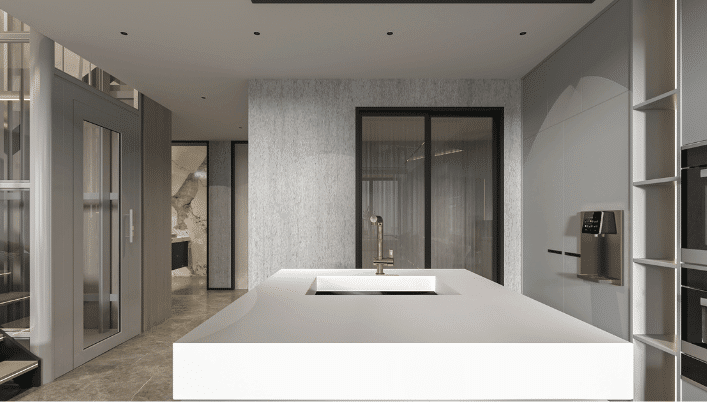
How can an interior designer help in the renovation process?
Interior designers play a crucial role in the renovation process by helping homeowners translate their vision into reality.
They possess the expertise and knowledge to maximize space, advise on suitable materials and finishes, and create functional and aesthetically pleasing designs.
An interior designer can also help streamline the renovation process by managing contractors, overseeing the project, and ensuring the timeline and budget are adhered to.
What should I consider when choosing an interior designer?
When selecting an interior designer, it’s essential to consider their portfolio, experience, and design style.
Look for someone whose previous work aligns with your aesthetic and requirements.
Communication and compatibility are crucial factors, as you will work closely with your chosen interior designer throughout the renovation process.
Feel free to schedule initial consultations to discuss your ideas, budget, and expectations to ensure a good working relationship.
What are some popular interior design styles for homes in Singapore?
Singapore is known for its diverse architectural styles and design preferences.
Some popular interior design styles include minimalist, industrial, Scandinavian, and contemporary.
Each type offers unique characteristics and can be tailored to suit your taste and lifestyle.
It’s important to explore different design styles and gather inspiration to determine which kind resonates with you the most and will complement your home.
Innovative Renovation Ideas to Elevate Your Living Space
What are some creative ways to maximize space in a small home?
For homeowners with limited space, various innovative ways exist to maximize every square footage.
Utilizing built-in storage solutions, opting for multifunctional furniture, and incorporating clever space-saving designs can help create an efficient and organized living space.
Additionally, using light colors, mirrors, and strategically placed lighting can create an illusion of a larger area.
How can I incorporate eco-friendly design elements into my renovation?
Creating an eco-friendly home is becoming increasingly popular in Singapore.
Homeowners can reduce their environmental footprint by incorporating energy-efficient appliances, using sustainable materials, and implementing waste management systems.
Additionally, incorporating natural elements such as indoor plants and maximizing natural lighting can help create a more sustainable and healthy living environment.
What are the latest trends in home renovation and interior design?
Home renovation and interior design trends are constantly evolving.
There is a growing emphasis on open-concept living spaces, seamless indoor and outdoor area integration, and sustainable materials.
Additionally, incorporating innovative home technology, such as automated lighting and temperature control systems, is gaining popularity.
It’s essential to stay updated with the latest trends and work with a knowledgeable professional who can guide you through the design and renovation process.
Crafting a Realistic Renovation Timeline for Your Project
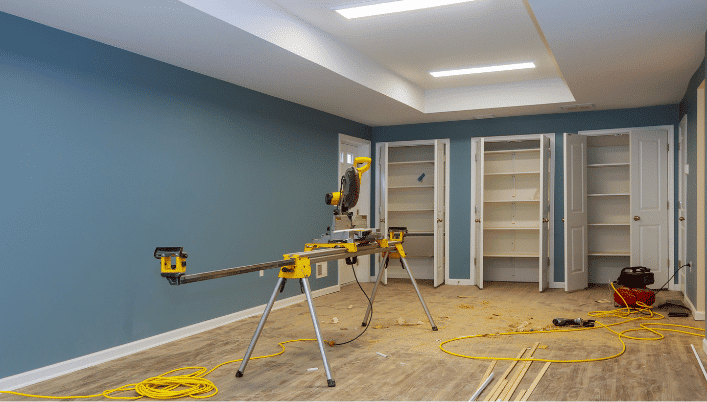
How long does a typical home renovation project take?
The duration of a home renovation project can vary depending on its complexity, scope, and size.
Small-scale renovations can take a few weeks to a few months, while more significant and extensive projects may span several months or even longer.
It’s important to discuss the estimated timeline with your renovation contractor and to factor in potential delays or unforeseen circumstances that may affect the overall completion date of the project.
What are some factors that can affect the timeline of a renovation?
Several factors can impact the timeline of a renovation project.
These include the availability of materials, the complexity of the design, changes made during the construction process, and external factors such as weather conditions.
It’s essential to communicate with your renovation contractor and have a contingency plan to address any potential delays or changes that may arise during the renovation process.
How can I ensure my renovation project is completed within the agreed timeframe?
To ensure that your renovation project stays on track, it’s essential to establish clear expectations and effective communication channels with your renovation contractor.
Set realistic timelines and milestones and regularly review the progress of the project.
Additionally, making timely decisions and promptly providing any necessary information or approvals can help prevent unnecessary delays.
Remember that flexibility is also crucial, as unforeseen circumstances may arise, and adjustments to the timeline may need to be made.
Must-Consider Renovation Ideas to Enhance Your HDB Resale Value
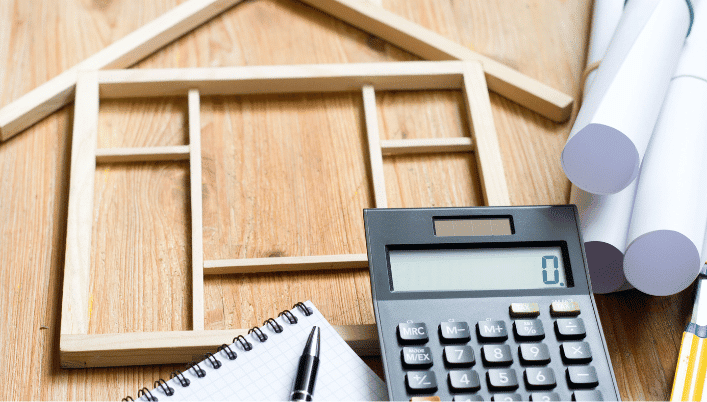
Renovation Ideas That Increase HDB Resale Value
When renovating your HDB resale flat, focusing on ideas to increase its value is crucial.
Some popular renovation options include upgrading the kitchen and bathroom, installing energy-efficient fixtures, and incorporating innovative home technology.
These improvements not only enhance the overall appeal of your home but also attract potential buyers who value modern and sustainable features.
Design Concepts That Attract Potential Buyers
In addition to specific renovation ideas, it is essential to consider design concepts that appeal to potential buyers.
Opting for a neutral color palette, maximizing natural light, and creating an open and spacious layout can make your HDB resale flat more visually appealing.
Collaborating with design firms experienced in residential renovations can help you achieve a cohesive and attractive design concept that caters to the preferences of a wide range of buyers.
Adding Fixtures to Improve Functionality and Appeal
When renovating your HDB resale flat, pay attention to the importance of adding fixtures that enhance functionality and appeal.
Upgrading lighting fixtures, installing air-conditioning units, and investing in quality floor finishes can significantly improve your home’s overall comfort and experience.
These additions make your living spaces more enjoyable and increase the perceived value of your HDB resale flat.
Budgeting and Financing Your Renovation: Tips and Strategies

How to Create a Realistic Renovation Budget
One of the crucial aspects of any renovation project is setting a realistic budget.
Before embarking on your HDB resale flat renovation, evaluate your financial situation and determine how much you can allocate for the project.
Consider factors such as the scope of your renovation, the cost of materials and labor, and any unexpected expenses that may arise.
It is advisable to consult with professionals or use online tools to create a detailed budget plan.
Alternative Financing Options for Your Renovation
If you do not have sufficient funds to cover your renovation expenses, alternative financing options are available.
One standard option is to apply for a renovation loan from banks or financial institutions.
Renovation loans provide the necessary financial support to complete your renovation project while allowing you to repay the borrowed amount in manageable installments.
Explore different loan options and choose the one that best suits your needs and financial capabilities.
Managing Costs and Expenses Throughout the Renovation
Managing costs and expenses throughout the renovation ensures your project stays within budget.
Regularly review your costs and make necessary adjustments to prevent overspending.
Obtain detailed quotations from contractors and suppliers, compare prices, and negotiate for the best deals.
Keeping track of all expenses and maintaining open communication with your contractor is essential to avoid unpleasant surprises that may impact your budget.
The Art of Balancing Functionality and Aesthetics in Renovation
Creating a Design Concept That Reflects Your Style and Needs
When renovating your HDB resale flat, balance functionality and aesthetics.
Ensure that your design concept reflects your style and suits your specific needs.
Consider the overall theme, color scheme, and layout that align with your preferences and lifestyle.
Collaborate with a design service provider to transform your vision into a reality and create a visually pleasing and practical space.
Choosing the Right Materials and Surfaces for Durability and Visual Appeal
Opting for suitable materials and surfaces ensures durability and visual appeal in your HDB resale flat.
Select materials ideal for the intended use and can withstand daily wear and tear.
Choose water-resistant and easy-to-maintain surfaces in areas such as the kitchen and bathroom.
Investing in high-quality materials may require a higher upfront cost but can save you from frequent repairs and replacements in the long run.
Optimizing Space and Layout for Maximum Efficiency
Maximizing space and layout is essential, especially in smaller HDB resale flats.
Explore innovative ways to optimize space and create versatile living areas.
Utilize vertical space for storage by installing shelves or cabinets.
Consider customized storage solutions that maximize available space in each room.
Additionally, design multifunctional furniture that serves dual purposes, such as a sofa bed or a dining table with built-in storage compartments.
Ensuring Compliance: Adhering to Building Control Regulations
Understanding HDB Renovation Permit Guidelines
Before initiating any renovation work in your HDB resale flat, it is crucial to understand and comply with the HDB renovation permit guidelines.
Particular renovations may require a permit from the Housing & Development Board (HDB) to ensure safety and structural regulations compliance.
Familiarize yourself with the specific guidelines and submit the necessary documents and drawings to obtain the required permit before commencing your renovation project.
Engaging a Professional Engineer for Structural Integrity Checks
To ensure the structural integrity of your HDB resale flat, consider engaging a professional engineer to conduct structural checks.
The engineer will assess the feasibility of your renovation plans and verify that any structural modifications or additions are safe and compliant.
This step is crucial, especially when undertaking major renovations that involve structural changes, such as removing walls or altering the layout.
The professional engineer’s certification assures that your renovation is carried out safely and without compromising the overall structure.
Signing a Renovation Contract to Ensure Compliance
To safeguard your interests and ensure compliance throughout the renovation process, it is advisable to sign a renovation contract with your chosen contractor.
A comprehensive renovation contract outlines the scope of work, project timeline, payment terms, and other relevant terms and conditions.
By signing a contract, both parties are legally bound to fulfill their obligations, which minimizes the risk of disputes and ensures a smooth and successful renovation journey.
Maximizing Space: Creative Storage Solutions for Your Renovated Home
Innovative Ways to Utilize Vertical Space for Storage
When it comes to storage in your renovated home, think vertically.
Utilize walls by installing shelves, hooks, or wall-mounted cabinets.
Use vertical storage solutions to organize your belongings and maximize valuable floor space.
You can optimize storage capacity using vertical space without cluttering your living areas.
Customized Storage Solutions for Different Rooms
Different rooms in your renovated home have unique storage needs.
Customizing storage solutions according to each room’s functionality can help you efficiently organize your belongings and maintain a clean and clutter-free environment.
In the kitchen, incorporate innovative storage options such as pull-out cabinets or drawers.
For bedrooms, utilize under-bed storage or built-in wardrobes to maximize space.
Designing Multifunctional Furniture for Space Optimization
Investing in multifunctional furniture is one effective way to maximize space in your renovated home.
For example, consider a sofa that can be converted into a bed or a coffee table with storage compartments.
These furniture pieces serve dual purposes and eliminate the need for additional items, reducing clutter and creating a more spacious atmosphere.
Addressing Noise and Disturbances during Home Renovation
Renovations often involve activities that can generate noise and disturbances, which can be a concern, especially if you live in an apartment building or share walls with your neighbors.
Minimizing such noise disturbances should be a priority when planning your renovation project.
There are several ways to achieve this:
Minimizing Noise Disturbances
One effective way to minimize noise disturbances during renovation is to schedule the louder and more disruptive tasks when your neighbors are less likely to be affected.
Limit power tools and machinery to reasonable hours, such as during weekdays between 9 am and 6 pm.
This way, you can ensure that the noise is minimal and does not cause unnecessary inconvenience to anyone.
Communicating with Neighbors
Another crucial step is to communicate with your neighbors beforehand.
Let them know about your renovation plans and discuss potential concerns or inconveniences they might experience.
It’s essential to maintain a good relationship with your neighbors and address any issues or complaints promptly.
Being considerate and keeping the lines of communication open can go a long way in minimizing conflicts and fostering a harmonious living environment.
Using Soundproofing Materials
Consider using soundproofing materials if your renovation involves significant structural changes, such as installing false ceilings or tearing down walls.
These materials can help absorb and dampen sound, reducing the impact of noise on neighboring units.
Discuss this option with your contractor or interior designer to explore the best soundproofing solutions for your renovation project.
Post-Renovation Cleaning: DIY Techniques for a Pristine Home
Once your renovation is complete, it’s time to clean up the mess and enjoy your newly revamped space.
Post-renovation cleaning can be daunting, but you can achieve a pristine and organized home with the proper techniques and tools.
Here’s how:
Cleaning Tools and Products
Invest in good-quality cleaning tools and products suitable for your home’s different surfaces.
Microfiber cloths, mops, vacuum cleaners, and specialized cleaning agents can make cleaning more efficient and effective.
Refer to the manufacturer’s instructions for proper usage and safety precautions.
Step-by-Step Cleaning Guide
Start by removing any renovation debris, such as nails, screws, and construction materials.
Sweep and vacuum the floors to remove dust and dirt.
Use appropriate cleaning agents to wipe down surfaces, including countertops, windows, and cabinets.
Remember to clean hard-to-reach areas, such as behind appliances or inside cabinets.
Finally, mop the floors to remove any remaining residue.
Organizing and Decluttering
Use the opportunity after your renovation to declutter and organize your belongings.
Sort through your items and consider donating or discarding things you no longer need.
Invest in storage solutions such as shelves, cabinets, and baskets to keep your space tidy and clutter-free.
Aesthetic Trends in Minimalist Interior Design for Modern Homes
Minimalist interior design has gained popularity recently due to its clean and elegant aesthetic.
This design style focuses on simplicity, functionality, and neutral colors.
If you’re considering embracing minimalism in your home renovation, here are some design tips:
Understanding Minimalism
Minimalism is all about stripping away unnecessary elements and embracing simplicity.
Start by decluttering your space and keeping only the essential items.
Opt for clean lines, uncluttered surfaces, and a neutral color palette.
Incorporating Neutral Colors
Neutral colors, such as whites, grays, and beige, are the cornerstone of minimalist design.
Use these hues as the base for your walls, floors, and larger furniture pieces.
Add visual interest by incorporating textures and patterns through accessories and accent pieces.
Furniture and Decor Choices
Select furniture and decor that aligns with the minimalist aesthetic.
Look for sleek, functional pieces, and free from excessive ornamentation.
Opt for minimalistic lighting fixtures, mirrors, and artwork that complement the overall design theme.
Building and Construction Authority’s Role in Your Renovation
The Building and Construction Authority (BCA) plays a vital role in ensuring the safety and quality of construction projects in Singapore.
When undertaking a renovation, it’s essential to understand the BCA’s guidelines and regulations:
Permits and Regulations
Depending on the scope of your renovation, you may need to obtain permits from the BCA.
This is especially relevant for significant structural changes or additions to your property.
Familiarize yourself with the BCA’s requirements and consult with a licensed contractor or interior designer who is experienced in navigating the permit application process.
Engaging Licensed Contractors
When renovating your home, you must engage licensed contractors who adhere to the BCA’s standards and guidelines.
Licensed contractors have the expertise and knowledge to execute your renovation project safely and efficiently.
Ensuring Safety Standards
The BCA has established safety standards for construction and renovation works.
It’s essential to ensure that your renovation project complies with these standards to safeguard the well-being of your family and neighbors.
Hiring professionals who prioritize safety measures and follow industry best practices is essential.
Collaborating with Skilled Professionals: Choosing an Interior Designer
When achieving your dream home, collaborating with skilled professionals, such as interior designers, is often wise.
Here are some tips to help you choose the right interior designer:
Researching Interior Designers
Do thorough research and compile a list of potential interior designers.
Look for professionals with experience in handling renovation projects similar to yours.
Check online reviews, portfolios, and websites for information about their design style and previous client projects.
Reviewing Portfolios and References
Review the portfolios of shortlisted interior designers to get a sense of their design aesthetics and expertise.
Request references from their previous clients to gain insights into their professionalism, communication skills, and ability to deliver satisfactory results.
Communication and Collaboration
Communication is critical when working with an interior designer.
Choose a professional who listens to your ideas, understands your vision, and communicates effectively throughout the project.
A collaborative partnership can lead to a successful and satisfying renovation journey.
Conclusion
Embarking on a home renovation journey can be both thrilling and overwhelming.
From maximizing space to enhancing aesthetics, a world of possibilities is awaiting you.
Imagine crafting your dream home with innovative designs that fuse style and functionality.
Discover how you can elevate your living space to new heights, all while staying within budget and timeline.
Dive into the art of harmonizing functionality and aesthetics.
Uncover the magic of multifunctional furniture that effortlessly adapts to your needs, ensuring every inch of your space is optimized.
Experience the tranquility of a minimalist interior design that whispers elegance and serenity.
Transform your home into a sanctuary where form and function dance perfectly.
But wait, there’s more.
Learn the ins and outs of navigating renovation regulations.
Unearth the power of vertical storage, revolutionizing how you organize and live.
Discover the joys of eco-friendly design, where every choice contributes to a sustainable future.
And remember the crucial lesson of effective post-renovation cleaning, a key to truly enjoying the fruits of your labor.
Intrigued?
Hold tight as we guide you through every step of your renovation journey.
From ideation to execution, we’re your trusted companion.
Welcome to a world of endless possibilities and breathtaking transformations.
Get ready to unlock the secrets of seamless home renovation, and watch as your dreams come to life before your very eyes.
Frequently Asked Questions
What are the renovation guide for HDB (Housing Development Board) flats?
Do I need a hdb renovation permit to renovate my HDB flat?
You should apply for the license through the HDB website.
Can I renovate my HDB flat without engaging a renovation contractor?
However, if you choose to renovate without a contractor, you must ensure that the results comply with HDB’s guidelines.
Are there any specific guidelines for renovating bathrooms and kitchens in HDB flats?
These guidelines cover aspects such as water and electrical provisions, ventilation, and the use of suitable materials.
Can I raise the floor level in my HDB flat during the renovation?
However, if the raising of the floor level exceeds a certain height, you may need approval from HDB.
What are some important things to consider when renovating my HDB flat?
You should also inform your neighbors ahead of time to minimize any disturbances.
Can I renovate the common areas outside my HDB flat?
These areas are managed and maintained by the resale HDB.
How can I ensure a smooth completion of renovation works in my HDB flat?
It is also essential to communicate clearly with the contractor and address any concerns promptly.
Are there any cleaning requirements after the renovation is completed in Singapore homes?
You can either choose to do it yourself or hire professional cleaning services.
It is essential to use suitable cleaning products and thoroughly clean all areas.
Is there any sensitive information I need to know during the renovation in singapore?
It is advisable to share sensitive information only on official channels or platforms to ensure the security and privacy of your data.












